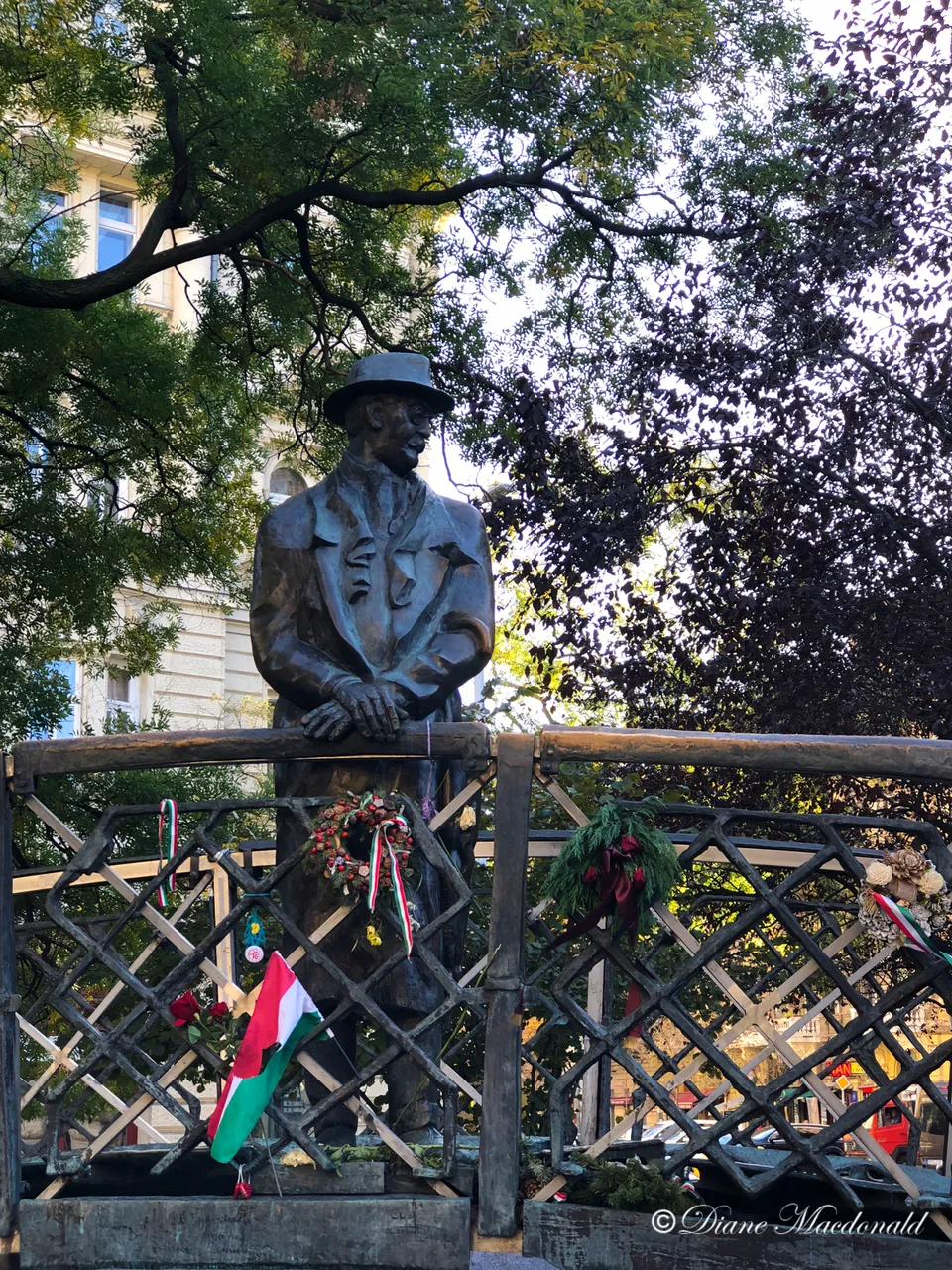LIBERTY SQUARE, BUDAPEST, HUNGARY
Today my son and I walked for 4.5 miles from his apartment in Pest to Margaret Island in the center of the Danube River where we rented bicycles and cycled for 5.5 miles across to Buda and then back to his apartment.
For this post though, I am focusing on one aspect of our walk - our stroll through Liberty Square where it seems that the turbulent history of Budapest for the last 250 years is summed up.
On the site of the square itself, once stood barracks built by the Austrians, where in the late 1700s many Hungarians were imprisoned and executed because of their struggle to free the country from the Habsburgs. The barracks were demolished in the late 1800s.
The square went on to become a symbol of Hungary’s liberation from Nazi Germany by the Soviet Red Army in World War II. This monument built by the soviets is not paricularly loved by the Hungarians who threatened to have it removed in the 1990s, only to be persuaded by the Russians to let it remain because Red Army soldiers are seemingly buried under it!
At the top of the obelisk is the communist star, and in the center is the Soviet hammer and sickle.

Image ©Diane Macdonald. All Rights Reserved. Camera: iPhone 8 Plus
Almost in defiance of the soviet memorial, American President Ronald Reagan appears to walk boldly towards it, with his gaze on the American Embassy ahead. He is featured here for his role in defeating communism with his famous speech which included the often quoted words, “Mr. Gorbachev, tear down this wall.”

Image ©Diane Macdonald. All Rights Reserved. Camera: iPhone 8 Plus
The Monument of German Occupation shows an eagle (Nazi Germany) descending on the Angel Gabriel (Hungary.) This monument is also quite controversial, because it does not acknowledge Hungary’s own part in the deportation of Jews to Auschwitz.

Image ©Diane Macdonald. All Rights Reserved. Camera: iPhone 8 Plus
This in turn has led to an unofficial, improvised and very touching memorial set up by the critics of the government memorial. This protest memorial claims that the government of Hungary during WWII were as much to blame as the Germans for the deportation of hundreds of thousands of Jews to death camps.

Image ©Diane Macdonald. All Rights Reserved. Camera: iPhone 8 Plus
Lastly, between Freedom Square and
the Hungarian Parliament Building, there is a monument of a bridge with a man, Imre Nagy, a Hungarian hero who was executed by the Soviets for taking a stand against communism by withdrawing from the Warsaw Pact in 1956 and appealing to the UN to recognize Hungary as an independent country. Later that year, the Soviets invaded Hungary and arrested Nagy, executing him in 1958 for treason.
Symbolically, Nagy has his back to the Soviet monument and is looking towards the Parliament Buildings and freedom. Walking across that bridge symbolizes walking away from communisnm and into freedom.

Image ©Diane Macdonald. All Rights Reserved. Camera: iPhone 8

Image ©Diane Macdonald. All Rights Reserved. Camera: iPhone 8

Image ©Diane Macdonald. All Rights Reserved. Camera: iPhone 8 Plus
Please note that this is all my original work and a similar post can be found here on Weku
Thanks to @tattoodjay for initiating the #wednesdaywalk theme.
